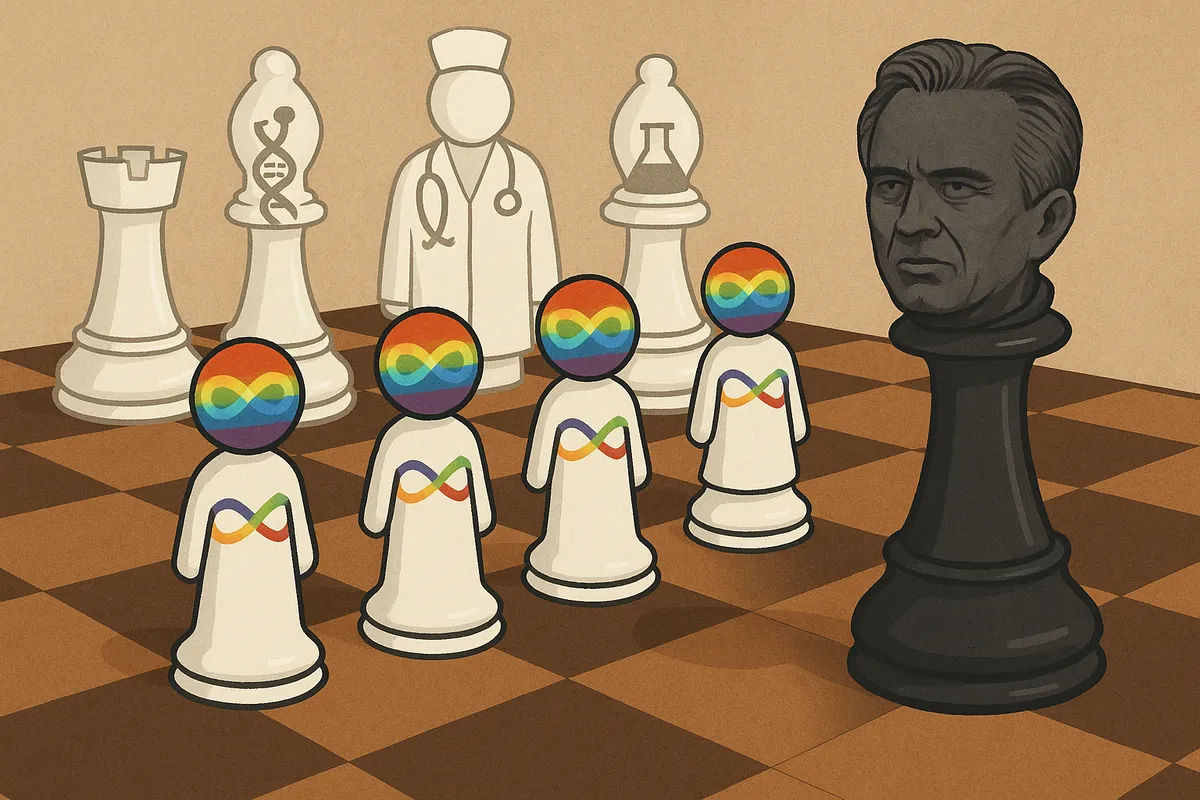When Autism Becomes a Political Pawn
 A coalition draws the line against pseudoscience in power
A coalition draws the line against pseudoscience in power
The Hill (via AOL) has reported that a national coalition of health professionals and scientists is warning against RFK Jr.'s latest shenanigans. It reads like a shield raised just in time. The danger isn’t subtle: an antivax figurehead who has spent years tying autism to conspiracy is about to release "interventions" for a so-called "autism epidemic." The coalition says no. That matters. And what their statement also shows is how quickly autism can be pulled into a policy fight where our lives become shorthand in the argument rather than the authors of the terms.
The Frame in Play
The coalition protects autistic people by naming the threat — pseudoscience in power. It shows how public health allies can draw a clear line, refusing to let conspiracy replace science. These professionals take up the task of saying what safety looks like. News coverage amplifies their stance and frames it as a matter of protecting families, systems and credibility. All of that matters. And it demonstrates the real value of allies stepping in when the stakes are this high.
Context Matters
Autistic folks being treated as pawns on a chessboard is all too common. For more than two decades, antivax movements have anchored their messaging in fear of autism. Every time those claims are amplified, autism is positioned as a hazard. Now that the antivax figurehead sits in a powerful government position, the stakes rise. That’s why this coalition intervention counts — because left unchallenged, the framing of autism as a tragedy that must be prevented becomes political currency with real consequences.
What the Coalition Gets Right
They refuse to indulge the ludicrous fantasy that antivax politics belong anywhere near public health. They call out the attempted substitution of science with conspiracy. They signal that autism is being used, not represented. And they validate the concern that pseudoscience at the cabinet level is not just rhetoric but governance. In a field where silence too often serves as cover, this clarity is protective.
Where to Grow From Here
The intervention is protective, but future reporting could move beyond safeguards toward participation. Right now autistic people are positioned as stakes in a conflict between public health and antivax forces, not as voices capable of setting the agenda. The coalition speaks. The experts speak. The journalists quote them. The risk is laid out clearly. The next horizon is to invite autistic voices alongside those allies.
Better Questions
- What would it look like if autistic-led coalitions were the ones defining what protection means?
- Why does autism surface in the media mainly when antivax politics weaponize it?
- How might coverage change if autistic people set the policy terms instead of being cited as the policy stakes?
- Could journalists treat autistic testimony not as an afterthought but as the first line of defense against pseudoscience?
Closing Beat
The coalition drew a line that needed to be drawn, and journalists gave it a platform. That protects us in the moment. The next step is ensuring autistic voices can shape the terms of safety and policy directly. Allies can bar the door to pseudoscience. Only we can author the terms of what counts as home.